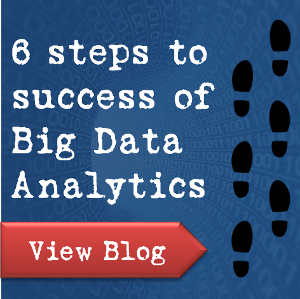Be Concerned About Your Online Privacy
Everyone talks about privacy, and apparently everyone is concerned about it, but going forward does it even really matter?
Most of us use Facebook, have smartphones, search the web with Google, use gmail or some other web-based email client, or any other tool or platform that companies so graciously give us access to. The truth is, simply loading a webpage of any kind tracks some bit of information about you.
But privacy is dead, right? Facebook knows everything about you, and the world is still turning. Whether you don't mind companies or the government knowing all about your private life or still feel completely uneasy at the idea, we often gloss over exactly why your personal data is worth protecting.
Individuals are all too often told that the information collected about them is "non-identifiable," which may very well be true to the party requesting it, but not so for anyone else with access to it later. More often than not, folks are unaware of the transactions that take place after a use clicks OK and signs their information away.
For example, back in 2014, Uber was under fire because the company had the power to track any user with their internal God View application, which would update the locations of any user who requested a car (which is something even law enforcement isn’t allowed to do without a warrant, but why not just request that sort of information from a company instead?).
Private entities like Uber are largely exempt from the Privacy Act of 1974, and once they collect your information, there's no way to tell what happens to it after that. Some companies reserve the right to sell the information, and while most explicitly promise not to in their privacy policies, they give themselves the out of being able to "share" information with their "strategic partners," which is the same thing, just without a cash transaction taking place.
But these companies don't keep personally identifiable information, right? You're just an aggregate number to them, so what's the worry? As a consumer, you should be able to safely use a powerful technology like GPS tracking to utilize services like Uber, to keep track of loved ones, or even something as frivolous as letting your friends find you downtown.
The thing is, information sharing is generally done between companies in order to obtain that information and refine their marketing efforts. While it may mean nothing more than a few coupons at your doorstep, the fact of the matter is the trade in aggregate information is a hot one, and companies specialize in taking aggregate information and making it very personal. Even if that's not a problem for you, the real issue is that once that information is assembled, and once it is personal, you have no rights or access to it once you've signed it away. Things like your birthday, your cell phone number, and even your pets name are all inane things that are typical passwords and security questions for regular folks.
So while the government and businesses are both scrambling to collect as much information as they can, you should have serious reservations about whether the data is being kept securely, what rights you have after the fact to remove personally identifiable information should be it collected, and how that information is being used by other groups (or even disgruntled employees) you didn't sign an agreement with once you give it up to the one you did.
Even if your privacy isn't important to you, there are others for whom privacy is paramount. There are plenty of people who aren't comfortable giving away their information, and they shouldn't have to fight to keep their addresses out of publicly accessible databases or off of a website where it's easily obtained. Victims of domestic violence, members of the LGBT community, political activists, human rights activists, police officers, even public figures all need privacy to make sure their families and homes are safe.
Even if you're not convinced that your data is worth protecting, there are others who need that protection. To that point, it's worth remembering that on many social networks, we give up information about those we're connected to when we let another app or service in, even if we've consciously decided we're okay trading the information requested about ourselves.
In the end, the important thing to remember before you click through another privacy policy is to be actively aware of the transaction you're making. Just because something claims it's free doesn't mean it is, and it's up to you to decide whether the service is worth your information ending up in literally anyone’s hands.


 Jeffrey
Jeffrey






